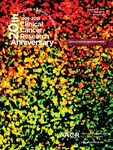 A federal investigation into a paper on prostate cancer has now led to a retraction. In an unusual twist, it happened following a request from the animal rights group People for the Ethical Treatment of Animals (PETA).
A federal investigation into a paper on prostate cancer has now led to a retraction. In an unusual twist, it happened following a request from the animal rights group People for the Ethical Treatment of Animals (PETA).
In January, the Office of Research Integrity reported that corresponding author Dong Xiao “intentionally fabricated data” in an Oncotarget study of how a steroid inhibits the growth of prostate cancer. Xiao, a former cancer researcher at the University of Pittsburgh, claimed that he had tumor data from more mice than he did, and falsified several figures.
In July, after no sign of the retraction, a researcher at PETA followed up with the journal, Oncotarget, on behalf of the organization “and our more than 3 million members and supporters to request the immediate retraction.”
Last month, they received a reply from the publisher, which they forwarded to us:
Continue reading Prostate cancer paper flagged by ORI is retracted following PETA prompt
 A study on the cellular interactions underlying prostate cancer has been retracted after a whistleblower pointed out duplicated images in one of the paper’s figures that were “erroneously presented as unique.”
A study on the cellular interactions underlying prostate cancer has been retracted after a whistleblower pointed out duplicated images in one of the paper’s figures that were “erroneously presented as unique.”







